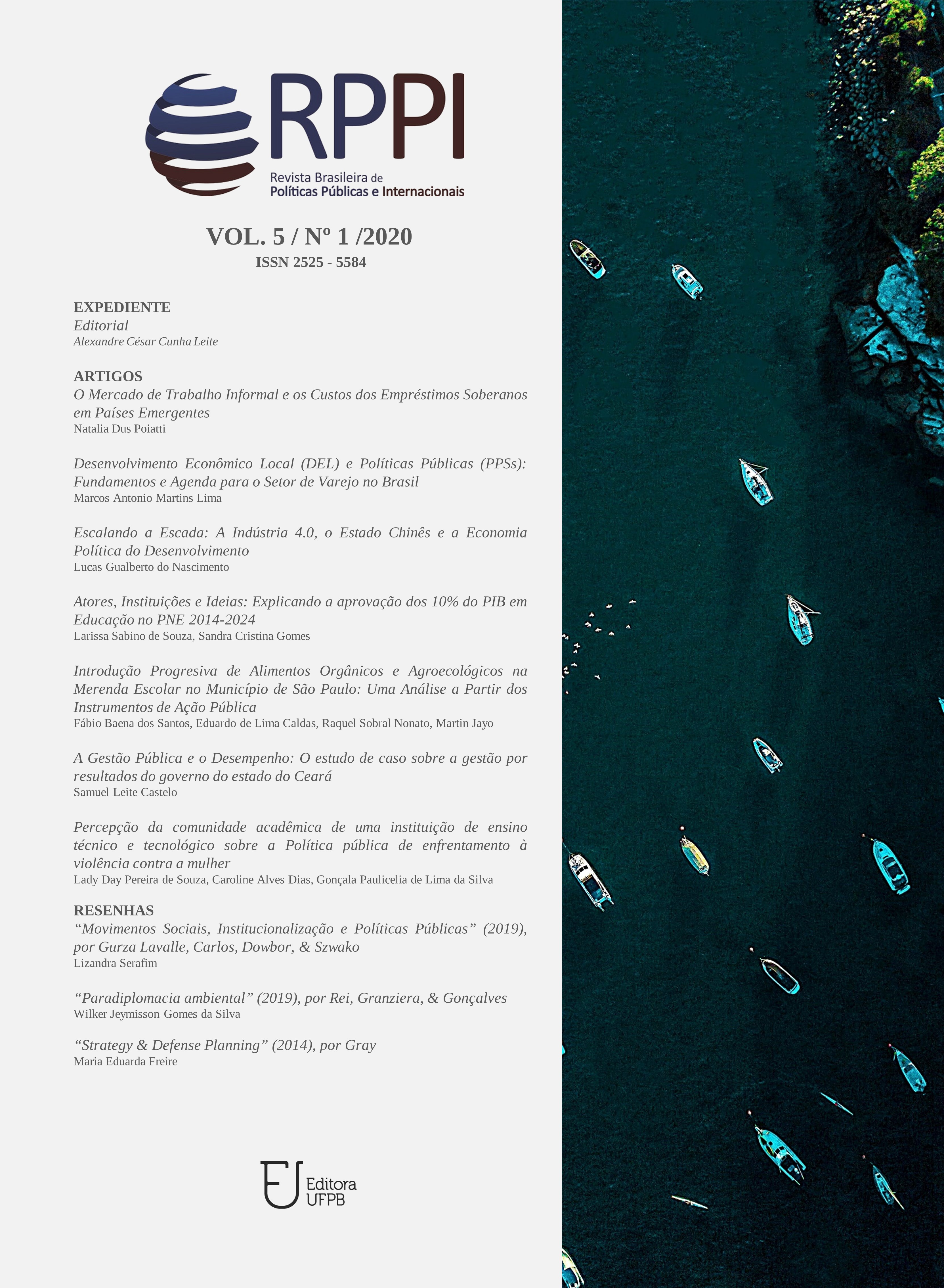The paper analyzes the implementation of the Plan for Progressive Introduction of Organic and Agroecological Items in School Meals in the city of São Paulo, Brazil. Such policy provides for the acquisition of products derived from family agriculture accor
The paper analyzes the implementation of the Plan for Progressive Introduction of Organic and Agroecological Items in School Meals in the city of São Paulo, Brazil. Such policy provides for the acquisition of products derived from family agriculture according Resolution 04/2015 of the National Fund for Education Development (FNDE). The objective was to understand the political process involved, from the point of view of public action network and its instruments. For this purpose, we performed documentary research and semi-structured interviews. Documentary research was based on a survey of national and subnational legislation, while interviews were performed with representatives of four government and cicil society institutions. The results show that the actors involved in policy formulation have converging ideas in what refers to the design of public action instruments.
DOI:
https://doi.org/10.22478/ufpb.2525-5584.2020v5n1.49221Keywords:
Public action instruments. School meals. Organics. Agroecology. São Paulo.Abstract
The paper analyzes the implementation of the Plan for Progressive Introduction of Organic and Agroecological Items in School Meals in the city of São Paulo, Brazil. Such policy provides for the acquisition of products derived from family agriculture according Resolution 04/2015 of the National Fund for Education Development (FNDE). The objective was to understand the political process involved, from the point of view of public action network and its instruments. For this purpose, we performed documentary research and semi-structured interviews. Documentary research was based on a survey of national and subnational legislation, while interviews were performed with representatives of four government and cicil society institutions. The results show that the actors involved in policy formulation have converging ideas in what refers to the design of public action instruments.
Downloads
Published
Issue
Section
License
Autores que publicam nesta revista concordam com os seguintes termos:- Autores mantém os direitos autorais e concedem à revista o direito de primeira publicação, com o trabalho simultaneamente licenciado sob a Licença Creative Commons Attribution que permite o compartilhamento do trabalho com reconhecimento da autoria e publicação inicial nesta revista.
- Autores têm autorização para assumir contratos adicionais separadamente, para distribuição não-exclusiva da versão do trabalho publicada nesta revista (ex.: publicar em repositório institucional ou como capítulo de livro), com reconhecimento de autoria e publicação inicial nesta revista.
- Autores têm permissão e são estimulados a publicar e distribuir seu trabalho online (ex.: em repositórios institucionais ou na sua página pessoal) a qualquer ponto antes ou durante o processo editorial, já que isso pode gerar alterações produtivas, bem como aumentar o impacto e a citação do trabalho publicado (Veja O Efeito do Acesso Livre).




_.jpg)






.png)


.jpg)
_.png)
